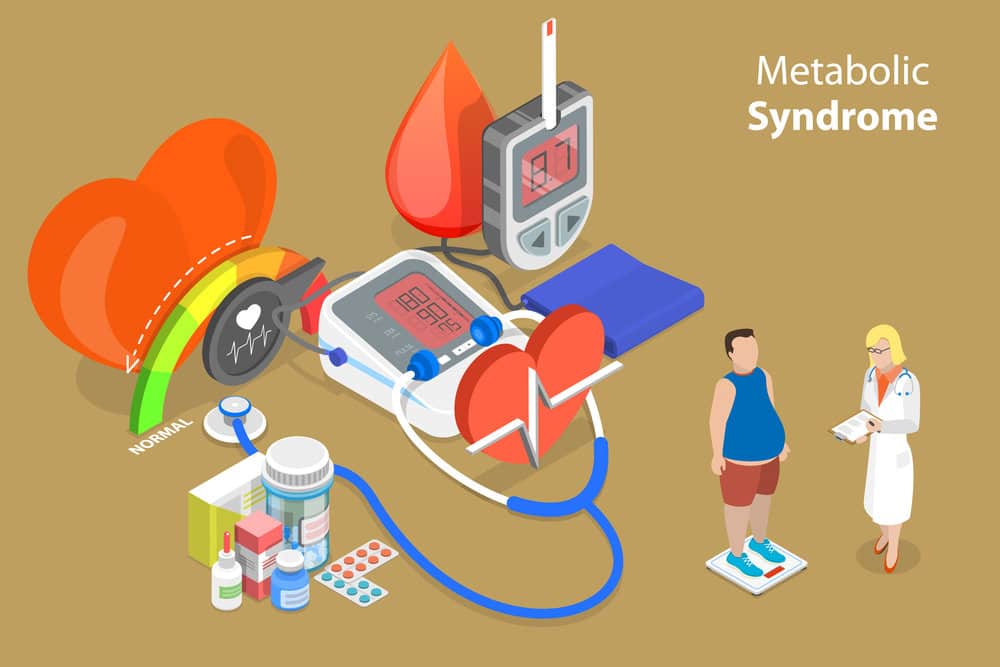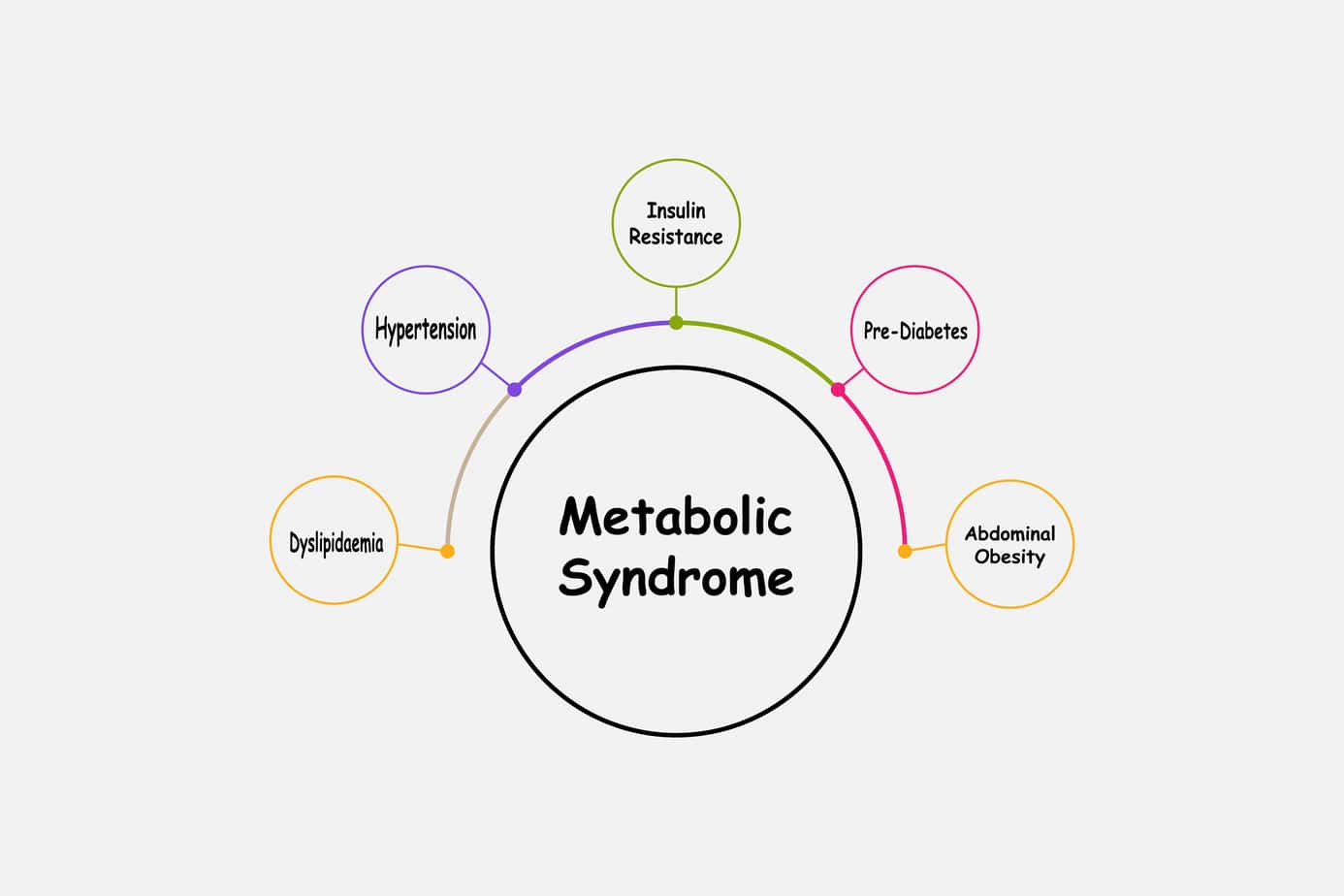What is Metabolic Syndrome?

Metabolic syndrome, also known as syndrome x, is a serious health condition that affects many people worldwide. To reverse metabolic syndrome, it’s crucial to understand and implement lifestyle changes and therapeutic strategies.
Metabolic syndrome is a cluster of conditions that occur together, including high blood pressure, high blood sugar levels, high triglycerides, low levels of good cholesterol, and excess belly fat.
This combination of risk factors increases the risk of heart disease, stroke, and diabetes. The good news is that metabolic syndrome can be managed, and even reversed, through lifestyle changes and proper medical treatment. In this blog, we will explore how to reverse metabolic syndrome with expert tips for success.
Understanding Metabolic Syndrome
Metabolic syndrome, also known as syndrome x, is a term used to describe a group of conditions that occur together, increasing the risk of heart disease, stroke, and diabetes.
It is defined by a combination of high blood pressure, high blood sugar levels, high triglycerides, low levels of good cholesterol, and excess belly fat. This cluster of risk factors is a serious health concern that affects millions of people worldwide.
Defining Metabolic Syndrome
Metabolic syndrome, also referred to as syndrome x, is a health condition characterized by a combination of risk factors that increase the risk of heart disease, stroke, and diabetes.
These risk factors include high blood pressure, high blood sugar levels, high triglycerides, low levels of high-density lipoprotein (HDL) cholesterol, and excess belly fat. To be diagnosed with metabolic syndrome, a person must have at least three of these risk factors.
Why is Metabolic Syndrome harmful?
Metabolic syndrome is harmful because it significantly increases the risk of heart disease, stroke, and kidney disease. In addition to this, metabolic syndrome is associated with insulin resistance, which can lead to high blood sugar levels and the development of type 2 diabetes.
It also affects blood vessels, causing them to become stiff, narrow, or clogged, which can further contribute to cardiovascular disease. Metabolic syndrome is also linked to sleep apnea, a serious sleep disorder that can have detrimental effects on overall health.
Recognizing the Symptoms and Causes

Metabolic syndrome can often go undiagnosed, as there may not be any noticeable symptoms in the early stages. However, it is important to recognize the risk factors and understand the potential causes of metabolic syndrome to effectively manage and reverse the condition.
Symptoms of Metabolic Syndrome
While metabolic syndrome may not present with specific symptoms, certain signs can indicate the presence of metabolic syndrome.
These include high blood pressure, high blood sugar levels, high triglycerides, low levels of good cholesterol, and excess belly fat. Insulin resistance, weight gain (especially around the waist), fatigue, increased thirst, frequent urination, and blurred vision may also be signs of metabolic syndrome.
Common Causes of Metabolic Syndrome
Metabolic syndrome is caused by a combination of genetic, lifestyle, and dietary factors. Insulin resistance, weight gain, physical inactivity, and poor diet are common causes of metabolic syndrome.
Genetic factors, such as a family history of metabolic syndrome, can also increase the risk of developing the condition. Certain health conditions, such as polycystic ovary syndrome, sleep apnea, and kidney disease, can contribute to metabolic syndrome as well.
Managing Metabolic Syndrome

Managing metabolic syndrome involves implementing lifestyle changes, seeking proper diagnosis, and utilizing targeted treatment approaches to reverse the risk factors associated with metabolic syndrome.
Diagnosis and Testing for Metabolic Syndrome
Diagnosing metabolic syndrome involves various tests to measure blood pressure, blood sugar levels, cholesterol levels, and waist circumference.
A waist circumference of greater than 40 inches in men or 35 inches in women, known as a large waist, is considered high risk for metabolic syndrome.
Blood pressure of 130/85 mmHg or higher, blood sugar levels of 100 mg/dL or higher, triglycerides of 150 mg/dL or higher, and low levels of good cholesterol are diagnostic criteria for metabolic syndrome.
Treatment Approaches for Metabolic Syndrome
The management and reversal of metabolic syndrome primarily involve lifestyle changes, such as adopting a healthy lifestyle through diet and exercise.
Weight loss, regular physical activity, and making healthy diet choices can improve blood pressure, blood sugar levels, cholesterol levels, and insulin resistance, all of which are risk factors of metabolic syndrome.
In some cases, medications, such as blood pressure, cholesterol, and blood sugar-lowering drugs, may be prescribed to manage metabolic syndrome.
The Mediterranean diet, which emphasizes whole grains, fruits, vegetables, lean protein, and healthy fats, has been found to be particularly effective in reversing metabolic syndrome. Lifestyle changes, such as quitting smoking, reducing stress, and getting enough sleep, are also important components of managing metabolic syndrome and maintaining a healthy lifestyle.
Prevention Strategies

Preventing metabolic syndrome involves making dietary adjustments and adopting lifestyle changes to lower the risk of developing metabolic syndrome.
Dietary Adjustments to Prevent Metabolic Syndrome
Making dietary changes can help prevent metabolic syndrome. Incorporating whole grains and a healthy diet rich in plenty of fruits, vegetables, lean protein, and healthy fats can reduce the risk of metabolic syndrome.
Avoiding high sugar foods and beverages can also help prevent metabolic syndrome. Including lean protein sources in your diet can be beneficial for metabolic syndrome prevention.
Lifestyle Changes and Metabolic Syndrome
Lifestyle changes play a crucial role in preventing metabolic syndrome. Engaging in regular exercise can improve metabolic syndrome risk factors.
Getting an adequate amount of sleep is important for managing metabolic syndrome, as sleep deprivation can exacerbate metabolic issues. Engaging in physical activity, such as regular exercise, can help reduce the risk of metabolic syndrome.
Making lifestyle changes, such as quitting smoking, can have a positive impact on metabolic syndrome risk factors. Incorporating stress management techniques, such as meditation or yoga, into your routine can help prevent metabolic syndrome.
Can you Reverse Metabolic Syndrome?
The good news is that metabolic syndrome can often be managed, and even reversed, through lifestyle changes and targeted medical treatment approaches.
Summary
To reverse metabolic syndrome, it is crucial to make significant lifestyle changes by adopting a healthy diet, regular exercise routine, and stress management techniques. By committing to these changes, you can improve your overall health and reduce the risk of developing chronic conditions associated with metabolic syndrome.
It’s important to note that reversing metabolic syndrome takes time and patience. Results may vary for each individual, but with dedication and consistency, positive changes can be achieved.
If you have any questions or would like to share your experiences with reversing metabolic syndrome, please feel free to comment below. Your input and insights are valuable to us.
Frequently Asked Questions
What is metabolic syndrome and how does it affect the body?
Metabolic syndrome is a cluster of risk factors that increase the risk of heart disease, stroke, and diabetes, as well as other health problems like conditions related to plaque buildup in artery walls (atherosclerosis) and organ damage.
These risk factors include high blood pressure, high blood sugar, excess body fat (especially around the waist), and abnormal cholesterol or triglyceride levels. Metabolic syndrome affects the body by increasing insulin resistance and inflammation, which can lead to further health complications, including health problems related to plaque buildup in artery walls and organ damage. However, with lifestyle changes, metabolic syndrome can be reversed, leading to improved overall health.
What are some lifestyle changes that can help reverse metabolic syndrome?
Making lifestyle changes is crucial for reversing metabolic syndrome and adopting a healthier lifestyle. Eating a healthy, balanced diet with plenty of whole foods and limiting processed foods is essential.
Engaging in regular physical activity, such as 30 minutes of moderate exercise most days of the week, can also help reverse metabolic syndrome. Getting enough quality sleep each night, aiming for 7-9 hours, is important for overall health and metabolic syndrome reversal. Managing stress through techniques like meditation or yoga can further support the reverse of metabolic syndrome.
How long does it take to see progress in reversing metabolic syndrome?
The timeline for reversing metabolic syndrome and achieving health benefits varies from person to person, as it depends on individual health conditions, lifestyle changes, and overall commitment. Generally, it can take several months to a year or more to see significant progress in reversing metabolic syndrome.
Consistent lifestyle changes, such as healthy eating and exercise, are key to achieving health benefits and reversing metabolic syndrome. Regular check-ins with a healthcare provider can help track progress and adjust treatment plans as needed.
Are there any medical treatments or medications that can aid in reversing metabolic syndrome?
While lifestyle changes are the first line of defense against metabolic syndrome, there are medications that can aid in managing the condition. Medications like statins and blood pressure-lowering drugs may be prescribed to control related health issues like high cholesterol and hypertension.
Bariatric surgery may also be an option for those with severe obesity-related metabolic syndrome. It is important to consult with a healthcare professional to determine the best treatment plan for your specific case of metabolic syndrome.
